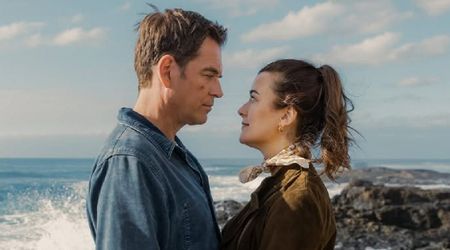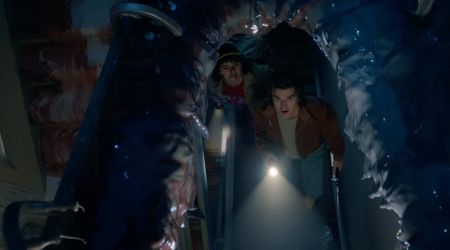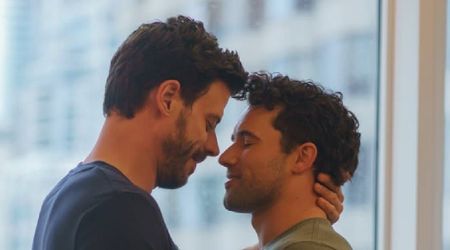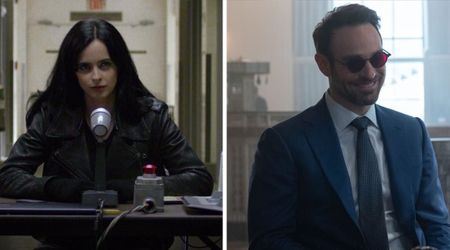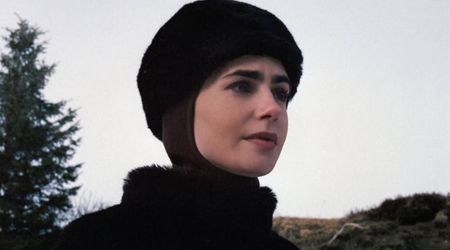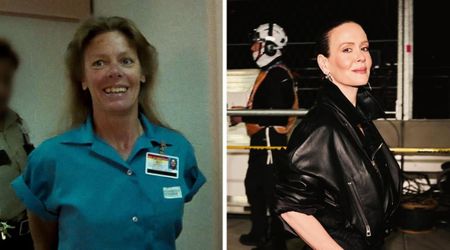Killing Eve' Season 3 Episode 5 Review: Villanelle's family reunion reveals dark things, will she find peace?

Spoilers for Season 3 Episode 5 'Are You From Pinner?'
Some people will have you convinced psychopaths are born, not made. Others will have you believe there is both light and darkness within every complex human being; it's who dares to cave into the darkness that makes them a villain. And while both of these analogies might be accurate, there is also a third line of belief that claims despite the looming darkness within, it is the world they are surrounded by that topples them over the edge of the fine line that separates good from evil. Jodie Comer's Villanelle is a case study for all three of these ideas.
A trip to her roots - all the way in Mother Russia - where her family has found a new life and a new family altogether reveals her dark origins. We find answers to what turned Oksana into Codename: Villanelle, and we find out if she was always the twisted psychopath she is now. But even with those contributing to her origin story meeting with consequences sharper than her murder weapons, it is her final breakdown after acting revenge that will have one intrigued.
That, and her capability of compassion and kindness - albeit minimal - but enough to separate her from the likes of Dasha, and Konstantin.
Episode 5 of Season 3 picks up right where the previous episode left off; deciding to keep us swirling in the aftermath of Eve Polastri (Sandra Oh) watching her estranged husband Niko (Owen McDonnell) die we are offered some much-needed foresight into Villanelle's background - where she comes from and the people who birthed her. She arrives in a quaint little village in the Russian countryside where barns and harvest festivals are the most thrilling aspect of life.
She navigates her way into the house in the most Villanelle way ever - unannounced and uninvited. There's a little boy whose only context of London is Elton John and he would pretty much die for the musician, but Villanelle needs time to take all of that in. Surrounded by her mother's new husband and his sons, Villanelle's only respite in all of this is Pyotr (Rob Feldman) - her brother - who recognizes her immediately and can't wait to enjoy little moments with his newly-discovered-alive sister.
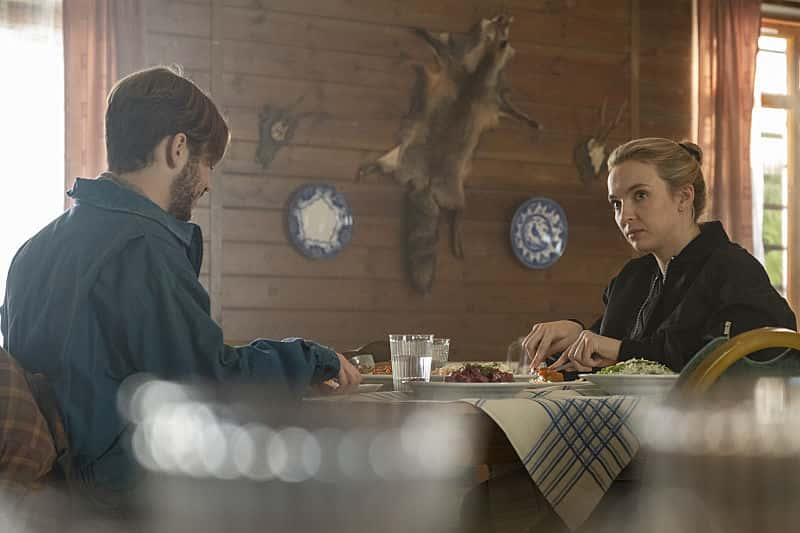
The same reaction comes from Villanelle's mother, but there is a certain latent hesitation to her tears of joy. The grocery bags fall of her hands the moment she sees Villanelle in her house, and her tears speak of grave heartbreak and thrill upon seeing her baby girl alive and home. But Villanelle's rushed panic at the prospect of facing her mother, and the lack of a tight hug back when the reunion finally happens tells otherwise.
Soon it becomes clear that the mother Villanelle knew until she was dumped at an orphanage and never sought out isn't the mother her brothers - both step and half know of. It is only in secluded conversations with Pyotr that the past comes up; Villanelle reminisces her funny father and dismisses Pyotr's claims of 'mother needing him'. She tells her mother was mean - something she also makes a point to inform her step-father of sorts in their own private chat - almost as if setting the table for the much-needed massacre.
On one hand, we have Villanelle experiences life in the countryside - participating in funfair events at the festival and winning dung throw competitions when not laughing her mind off at her step brother's ardent beliefs in America's moon landing being fakes. Typical Russians, one would say, and the episode does tread on the fine line between humor and caricature; but it is in the striking parallel it sets up with an air of impending doom and darkness that's absolutely inescapable.
It all begins when Villanelle sees her mother speak to her youngest child after he loses at one of the competitions at the fair.
Villanelle is almost ready to reconsider her opinions of a bullying mother, but the little kid later tells her how "mother said she was embarrassed" that he lost. It confirms Villanelle's faith that even with all her pretense and a new life, some things will never change. And even with no Eve, or The 12 around to drive her towards murderous rage, it is the darkness in her origins that turned her into the sociopath she has become.

The imminent confrontation sees her mother ask her to leave - in the most twisted family reunion plot that television has ever seen. One would think Villanelle's mother would welcome her with open arms, but within a short day of pretending the orphanage had lied to her about Villanelle dying, her mother can't carry on the act anymore. It's bad enough that her need to be nurtured by a mother goes unnoticed, but she is also blamed for driving a wedge between her parents - a cardinal sin, evidently, based on how rattled her mother still is over that.
In these moments Comer reminds us once again why even imagining someone else as the bratty, childish, trained assassin would be a foolish thought.
The way she quivers her voice rages tears, and disguises her begs as Villanelle comes undone, aching for her mother to admit she is her mother's daughter, is worthy of another consecutive Emmy win. But it is in those final moments of the train ride back home after she lit her mother's house on fire, making sure the little brother and Pyotr were safe from her torture for the rest of their life is what makes her a villain we can't get enough of.
That and of course the twisted irony of the way see achieves vengeance: her mother maintains the orphanage told her Villanelle had died in a fire, when in reality she never went to look for her daughter.
Clad in a dress that belonged to her mother, Villanelle tries to deafen out the sounds of what she has done by music at full volume. But it keeps coming back: the hatred, and the abandonment, mixed with inherent darkness she cannot escape, and she breaks down once again. Maniacal rage takes over and it's just enough to tease things are about to get very, very ballistic with no closure to be found for the sociopath: a storm no one is prepared for.
'Killing Eve' Season 3 airs on Sundays at 9 pm only on BBC America.



